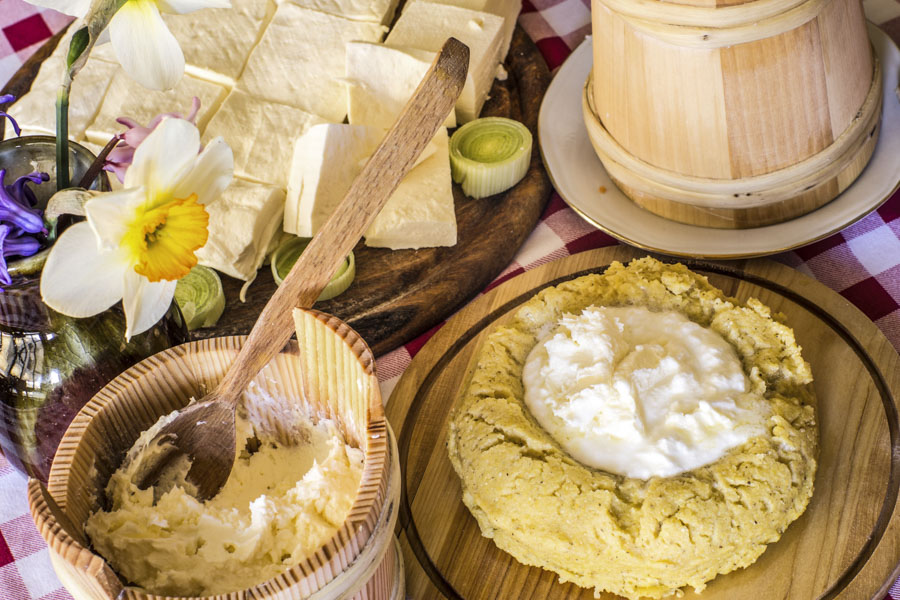
PROJECT: Upgrade of meat quality standards in Montenegro and exchange of lessons learned in the Western Balkans
MAIN GOAL
Enhancing the sustainability of Montenegro’s meat sector through compliance with safety and hygiene requirements in line with EU standards, and the development of GIs
BACKGROUND
The livestock and meat sector is the most important food chain in Montenegro, representing approximately 45 percent of total agricultural production. Montenegrin meat producers must comply with higher safety and quality standards if they want to remain competitive. Montenegro has already adopted legislation that allows for the registration and protection of GIs at national level; but no GIs have been registered yet under this new law. GIs are a good way to add value to agri-food products in sectors where production is fragmented. Montenegro’s meat sector, which produces several traditional high-quality products from specific parts of the country, has excellent GI potential.
The development of food safety and quality standards in member countries is part of FAO’s core mandate. Through their partnership, the EBRD and the FAO Investment Center are assessing opportunities to improve such standards among several of the EBRD’s countries of operation, namely Croatia, Georgia and Serbia.
OBJECTIVES OF THE PROJECT
The FAO Investment Center and the EBRD worked with the Montenegrin Ministry of Agriculture, Forestry and Water Management to support the country’s meat sector by improving food safety compliance and developing quality labels to increase competitiveness.
IMPACT
This project has helped to strengthen cooperation between governmental institutions, private sector companies, civil society and research centres in the development of higher food safety and quality standards.
Two traditional products – Crnogorska Goveđa pršuta (Montenegrin dried beef meat) and Crnogorska Stelja (Montenegrin dried and smoked sheep meat)— received national GI status. This created a spill-over effect and set an example for other sectors, like the dairy sector, to follow suit.
ACTIVITIES
Facilitated discussions for the establishment of bylaws and the inclusion of derogations and flexibility measures to the EU hygiene package for smallholders and traditional meat products.
Carried out joint work with agribusinesses, small producers and public authorities to establish the first GIs in the meat sector. The meat products proposed for GI registration were
Crnogorska Goveđa pršuta (Montenegrin dried beef meat) and
Crnogorska Stelja (Montenegrin dried and smoked sheep meat).
3.) Support was provided for the development GI product specifications and the necessary steps for GI registration and certification.
The project carried out capacity building activities for public authorities on the registration and protection of GIs, and for private stakeholders on the management of the GI status and marketing of GI products. Activities included workshops and capacity building trainings, consumer surveys, sectoral reviews, awareness raising leaflets, consumer protection analysis, a knowledge-sharing study tour to Austria and participation in international fairs.
LESSONS LEARNED
I.) The GI process strengthened partnerships between actors in the value chain, including public entities, agribusinesses, retailers and small-scale producers.
II.) The process strengthened the legal and institutional GI system for producer and consumer protection.
III.) It captured the knowledge of small-scale producers, helping to preserve traditions and the country’s food heritage and empowering local players.
Spillover effect: Other traditional products followed the Goveđa pršuta path, including Kolasin Lisnati cheese.
As part of an extended territorial strategy, GI development also represents a tool for promoting tourism and cultural/gastronomic heritage.
Public and private capacity for GI management and marketing of GI products were increased.
In informal markets characterized by small-scale, older and fragmented units of production, it is important to develop flexibility measures and derogations that maintain the specific characteristics of the product and traditional processing techniques while also meeting food safety requirements for commercialization.

Project contributing to:

Duration
2018-2019
Partners
European Bank for Reconstruction and Development (EBRD) and Ministry of Agriculture and Rural Development of Montenegro (MARD)
Beneficiaries
Farmers, processors, agribusiness companies, small and medium enterprises, practitioners supporting rural development, rural communities, national authorities in charge of intellectual property or agriculture.
Related links
Contact
